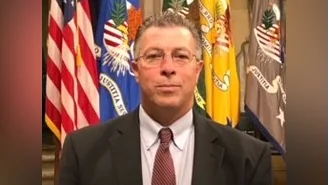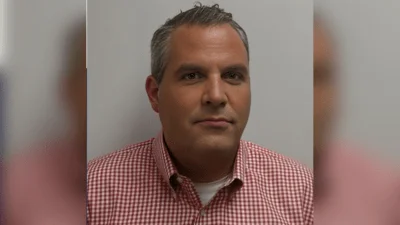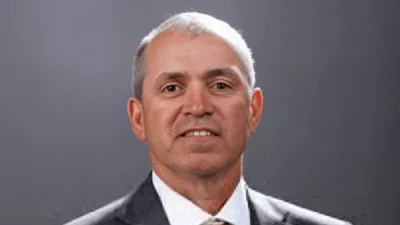The Congressional Record is a unique source of public documentation. It started in 1873, documenting nearly all the major and minor policies being discussed and debated.
“War on Drugs (Executive Session)” mentioning Chuck Grassley was published in the Senate section on pages S4641-S4643 on June 21.
Of the 100 senators in 117th Congress, 24 percent were women, and 76 percent were men, according to the Biographical Directory of the United States Congress.
Senators' salaries are historically higher than the median US income.
The publication is reproduced in full below:
War on Drugs
On a different topic, Madam President, last week marked the 50-year anniversary of President Nixon's declaration of a War on Drugs. Today, America imprisons a greate share of its population than any nation on Earth. Drugs are cheaper and more easily available than ever, and substance abuse is destroying more American families than ever. The greatest harm has fallen on our most vulnerable citizens, particularly low-income Americans and communities of color.
During the first four decades of the Nixon War on Drugs, America's Federal prison population grew by 700 percent, and the cost of operating Federal prisons exploded by 1,100 percent. Today, nearly half the people in Federal prisons are locked up due to drug-related charges. We are learning the hard way that we can't jail our way out of a public health crisis.
In recent years, the Senate has come together on a significant bipartisan basis to correct some of the gravest mistakes on the War on Drugs. I am grateful to my friend, the ranking Republican member on the Judiciary Committee, Senator Chuck Grassley, for his leadership in this effort. We forged a bipartisan partnership that ended up sending the First Step Act, a reform effort, to President Bush to sign into law--
pardon me--sent to President Trump to sign into law.
Tomorrow, the Senate Judiciary Committee will hold a hearing on another crucial piece of reform: Eliminating the disparate treatment of crimes involving crack and powder cocaine in Federal sentencing laws. Congress established this disparity in the 1980s, based on fear and mistaken illusions of science.
We reduced the disparity with the Fair Sentencing Act, but we didn't eliminate it. Today a person arrested for 28 grams of crack will receive the same sentence as a person with 500 grams of cocaine powder, even though it is exactly the same drug.
This lingering disparity made racial inequities in our criminal justice system even worse, undermined faith in the integrity of our justice system, and, worst of all, failed to even curb drug addiction in America--talk about three strikes. We should eliminate the disparity once and for all, and there will be a hearing tomorrow.
For the People Act of 2021
On another matter, Madam President, tomorrow our democracy will face one of its greatest tests in the Senate. On January 7, at close to 4 o'clock in the morning, this Senate voted to confirm the electoral victory of Joe Biden to be the next President of the United States, but we all know what happened before that vote. An angry, self-pitying man who would not accept defeat, we now know, schemed for weeks about how to overturn the election and continue his Presidency. When Donald Trump's efforts failed and democracy prevailed, he begged a mob to come to Washington and deliver him from reality. You have seen the videos, the films--the President standing with the White House in a background, railing to this crowd about an election that was ``stolen,'' urging them to come to Capitol Hill and make a difference. He demanded that they come and ``stop the steal,'' and then he turned that mob on the Capitol of the United States. Those of us who were here that day will never forget it.
The outrageous insurrection that followed was the worst attack on this building and the most prolonged siege of the Capitol since the British attacked our Capitol in the War of 1812. Five people died, and more than 140 police officers were injured. It could have been worse. Senator Lindsey Graham, Republican of South Carolina, was right when he said the day after the attack that that mob ``could have killed us all.''
The assault on the Capitol left our Nation shaken and the world in disbelief that it could happen in America. But it was not what one group of Washington power peddlers worried about most when they gathered on a conference call 2 days later. These Washington insiders scheduled a private conference call just 2 days after this attack on the Capitol. They were scrambling to come up with a plan to kill a democracy reform bill. The call was organized by the Koch brothers. Among the participants was a key member of Senator McConnell's staff.
A recording of the conference call found its way to Jane Mayer, an investigative reporter for The New Yorker magazine, who wrote about it. According to Ms. Mayer's reporting, the reason the political insiders and special interests in that call were frightened was because they couldn't find a way to beat S. 1.
The Koch brothers group poll-tested criticisms of the bill, and none worked. It wasn't just the Democrats who liked the reforms in that bill. It turned out the Republicans liked them, too. According to a Koch representative who hosted the meeting, ``There's a large--very large--chunk of conservatives who are supportive of these types of reforms.'' Surprise, surprise.
What is a poor political insider to do when you can't manufacture a reason to vote against a bill? There is only one way to stop it, and it is what the people in the meeting referred to as ``under the dome strategies'' to stop this electoral reform bill. Do you know what that is? That is the filibuster--the ``killibuster''--that Senate procedure which requires 60 votes. They knew they couldn't win a majority, but they knew it was tough to come up with 60 votes in favor. And that is what I am afraid we are going to see tomorrow. I hope not.
Last night, I watched with many Americans as the movie ``Selma'' was televised. It reminded us of what happened in the 1960s when people like my personal friend and hero to many of us, John Lewis, marched across that bridge in Selma, AL, trying to speak up for what? Voting rights for African Americans. He was beaten and bloodied and almost died in the process, but they mustered the strength to come back again and to resume the march. And they prevailed. In passing the Voting Rights Act, which gave a fighting chance for African Americans and other people to be able to vote in the future of America.
This still is a challenge for us today. Why? I don't know. We have seen, in the recent past, six or seven Republicans publicly break with Donald Trump in some of his more outrageous positions, and yet they have been strangely silent on that side of the aisle when it comes to what is happening in States across the Nation where we have measures taking place that will limit the right of people to vote.
What is wrong with this picture? Is democracy not at its strongest point when more people are participating? And yet Republican legislatures write bill after bill to limit those who can vote in the future.
Madam President, I want to say a word or two about my colleague Senator Joe Manchin. I want to thank him for his determined efforts to find a compromise on the bill that is coming before us. Senator Manchin spoke to everyone in sight--Republicans, Democrats, Independents, liberals, and conservatives--and he listened. The compromise he proposed is not inclusive of everything I would like to see in the bill, but the reality is that it would be an improvement. It would help address the dangerous, all-out assault on voting rights that is taking place in all these States that I mentioned. It could help put Jim Crow back in the grave, where he belongs. And it deserves the support of the Senate.
My last word before I close. I had the honor of serving with Senator Robert Byrd. He used to sit back here. He once told me, in his illustrious Senate career, the things he was embarrassed by the most. He talked about deregulation of airlines, which took the planes out of his State of West Virginia. He talked about a nominee for the Eisenhower Cabinet who was rejected because he was Jewish. He told me he was wrong in the way he voted on those measures. But he said: Mr. Durbin, more than anything, I was wrong on civil rights.
Madam President, this past Saturday was not only Juneteenth, it was the 57th anniversary of the Senate's passage of the Civil Rights Act of 1964. It had been filibustered for 2 months before it passed. Opposition to the bill wasn't divided along party lines. I will be honest. My party, the Democratic Party, particularly southern members of the party, was leading the fight against it.
On June 8, 1964, one of the most conservative Democrats stood on the floor with an 800-page speech filled with all kinds of reasoning about why civil rights was unnecessary and an infringement on States' rights--an echo of a speech we just heard on the Senate floor. That Senator's name was Robert C. Byrd. He spoke on this floor for 14 hours and 13 minutes. When he finished, the majority leader called the roll, and 71 Senators voted to end the filibuster--4 more than were needed. Ten days later, on Juneteenth 1964, the Senate passed the Civil Rights Act. On July 2, it passed the House and was signed by President Johnson.
Robert C. Byrd would go on to serve for another 46 years in this Senate and become majority leader twice and the longest serving Senator in history. He later called his filibuster of the Civil Rights Act
``the worst mistake of my life,'' a decision which he told me personally he deeply regretted. He would change. He would begin to champion civil rights.
When President George W. Bush signed the law extending voting rights in 2006, it was Robert C. Byrd by his side in the Oval Office, along with Ted Kennedy and John Lewis.
When Robert Byrd died in 2010, John Lewis mourned him and called him an ally and ``true statesman.'' Yet, despite all the years that had passed and all the good he had accomplished, many articles on his death stated that he once stood against civil rights.
If the last year has taught us anything, it is that life is fragile. None of knows how long we have in this Senate or on this Earth. So I implore my colleagues who may be wrestling with how to vote tomorrow: This is a vote for history. This is democracy on trial. Think about how you want to be remembered by your children's children.
If democracy is worth fighting for, even worth dying for, surely a democracy reform bill is worthy of debate in the Senate. Allow the Senate to do its job and debate the For the People Act.
I yield the floor.
I suggest the absence of a quorum.
The PRESIDING OFFICER. The clerk will call the roll.
The bill clerk proceeded to call the roll.
Mrs. SHAHEEN. Madam President, I ask unanimous consent that the order for the quorum call be rescinded.
The PRESIDING OFFICER (Ms. Duckworth). Without objection, it is so ordered.
(The remarks of Mrs. Shaheen and Ms. Collins pertaining to the introduction of S. 2146 are printed in today's Record under
``Statements on Introduced Bills and Joint Resolutions.''
The PRESIDING OFFICER. The Senator from Texas.





 Alerts Sign-up
Alerts Sign-up